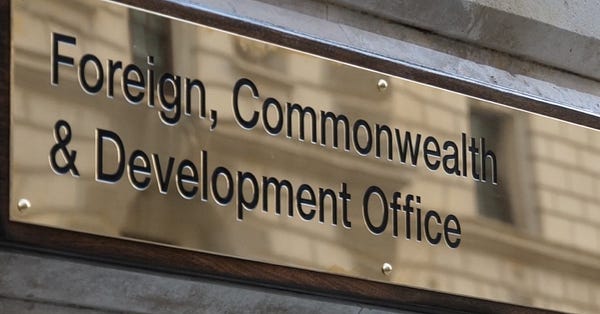Myanmar's worsening crisis, HK prepares for electoral overhaul and Bitcoin's environmental cost
8 - 14 March 2021
Hello and welcome! 👋
Thanks for reading! Please feel free to get in touch with your feedback and comments.
BLOODSHED IN MYANMAR
At least 70 people in Myanmar have been killed by state security forces amid a crackdown on demonstrators following the 1st February coup. The widespread persecution “likely meets the legal threshold for crimes against humanity,” warned a UN-appointed expert on Thursday.
Amnesty International says Myanmar’s military - officially known as the Tatmadaw - is using “increasingly lethal tactics and weapons normally seen on the battlefield”. Other monitors have also noted the junta’s determination to crush protests across the country, from the main cities to smaller rural towns.
In the last few days, the US introduced fresh sanctions on Myanmar’s army chiefs, while the UK told its citizens to leave due to the escalating violence. From London to Canberra, governments are taking a tougher stance on the Tatmadaw’s actions - Russia says the number of casualties is “a matter of worry”; South Korea will suspend defence exchanges with the country and reconsider its development aid; and Australia stopped military cooperation and called for the release of Aung San Suu Kyi.
Although these responses bring global attention to Burmese politics, the reality is the Tatmadaw never relinquished control of key institutions (something I wrote about previously). And despite the chorus of international condemnation, Myanmar’s ASEAN peers and biggest trade partners still maintain a policy of “non-interference in internal affairs”. What’s up for debate is whether this is driven by self-interest or a better understanding of their neighbour’s complicated history?
Singapore’s former foreign minister has advised a compromise with the junta rather than pushing to dissolve it. “There's a fair chance that Myanmar would become a Libya or Iraq...We would have years and decades of trouble,” explained George Yeo at a forum.
Elsewhere, an op-ed in the Bangkok Post [N.B. Thailand itself is under military rule] cautioned against sanctions because “nothing would serve Chinese interests more than new US-led efforts to isolate Myanmar.”
For its part, the Tatmadaw has scoffed at the penalties imposed by Washington and its allies. It appears the thinking is, “we are used to sanctions and we survived those sanctions in the past.” However, General Min Aung Hlaing and his crew are reportedly “very surprised” by the strength of the opposition.
Indeed, the Tatmadaw has severely misjudged the population’s mood as well as the younger generation’s ability to organise a civil disobedience movement. Students along with workers have staged walk outs at state-owned enterprises and government ministries. There’s even a campaign to boycott products from military-linked companies in a bid to hit the regime’s revenues.
The fear is, though, that this crusade will only spur the junta to press on with its heavy-handed tactics.
NPC’S STAMP OF APPROVAL
The National People’s Congress (NPC) ended its annual session on Thursday by approving a resolution to reform Hong Kong’s electoral system.
As expected, the wishes of the CCP’s Central Committee were granted. To recap: Beijing aims to screen all candidates in the territory to ensure they pass the “patriot” test. Consequently, it will be significantly harder - perhaps even impossible - for members of the pro-democracy coalition (often referred to as the pan-democrats) to run for office.
In many respects, Hong Kong’s organisations were already stacked in Beijing’s favour. But the 2019 protests coupled with the pan-dems’ sweep of the district councils were the final straw for President Xi Jinping.
Here in Hong Kong, there are mixed reactions to this development. Since the imposition of the National Security Law last summer, a majority of the population have resigned themselves to the fact that the transition to 2047 is starting earlier than anticipated. For some, that means keeping calm, carrying on and hoping for the best; for others, packing up and moving abroad is the preferred option.
On the political front, the pro-democracy camp says the principle of ‘one country, two systems’ is basically dead. Since scores of pan-dem lawmakers have either been arrested or disqualified, they wonder why Beijing is still bothering with the theatrics of an election when direct representation is obviously off the table.


The CCP argues otherwise, pointing to Hong Kong’s separate currency and monetary authority, independent immigration department, freedom of religion, unrestricted access to the internet and so on. In their view, swearing allegiance to China should be standard protocol.
Additionally, the pro-Beijing side and Chinese state media say Hongkongers should welcome the prospect of stability. By stamping out disruption and street clashes, residents can enjoy peaceful lives and not stress about financially damaging “riots”.
[Reminder: Hong Kong’s economy slipped into recession in 2019, well before the coronavirus health emergency. Ironically, the pandemic hasn’t really affected the opening hours of retail outlets or shops in the city. For instance, Gucci, Zara, H&M, IKEA et al. have yet to close their doors due to Covid concerns.]
Either way, Beijing’s measures will heighten the pressure on Hong Kong’s government to address a myriad of socio-economic issues, including the city’s lack of affordable housing and rising unemployment rates. With no opposition figures left to blame, Carrie Lam and her cabinet will need to prove how they’re implementing various changes effectively.
CRYPTO’S CARBON FOOTPRINT
After experiencing a bumpy ride in recent months, Bitcoin’s value has once again sailed past the US$50,000 mark - and touched a record high of US$61,000 on Saturday.
But while investors and central bankers fret about the cryptocurrency’s place in modern finance, scientists are sounding the alarm on Bitcoin’s carbon footprint.
Cambridge University research shows how the digital asset’s total electricity consumption is greater than that of several of countries, including Pakistan and Norway.
How did it get to this point? Well, “mining” Bitcoin is a deeply energy-intensive process. The activity relies on a network of computers that must solve complex algorithms in order to verify transactions and release new coins into circulation. As a result of Bitcoin’s incredible rally, the miners have been incentivised to run more and more machines since they receive small amounts of the token as a reward.
Because of the decentralised and unregulated nature of the blockchain technology that underpins Bitcoin (and other cryptocurrencies), there’s no single authority responsible for promoting eco-friendly mining.
Experts say Bitcoin miners tend to be based in areas where electricity is cheap, regardless of whether the source is a renewable one or a coal-fired power station. Currently, most of the mining pools are located in China - however, Bitcoin’s energy demands could now be too much for certain regions, such as Inner Mongolia.
Environmentalists continue to flag the potentially harmful impact on the planet. According to a briefing by the European Environment Agency: “Wider use of blockchain technology could counteract climate change mitigation efforts, as electricity remains largely generated from fossil fuels worldwide.”
But Bitcoin and crypto supporters are convinced of the long-term advantages of the tokens, especially as governments increasingly shift to greener energy solutions.
Till next time! Stay curious, Sara x





